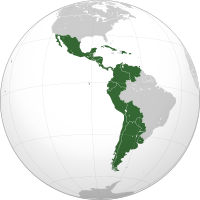
Photo from wikipedia
Objectives To investigate whether having a purpose in life (Ikigai) is associated with risk of cardiovascular disease (CVD) mortality and whether the association varies by employment status. Design Prospective cohort… Click to show full abstract
Objectives To investigate whether having a purpose in life (Ikigai) is associated with risk of cardiovascular disease (CVD) mortality and whether the association varies by employment status. Design Prospective cohort study. Setting Residents in 45 municipalities, Japan. Participants 29 517 men and 41 984 women aged 40–79 years, free of CVD and cancer at baseline from 1988 to 1990. Primary outcome measures CVD mortality. Results During the median follow-up of 19.1 years, 4680 deaths (2393 men and 2287 women) from total CVD were observed. Greater Ikigai was associated with a lower risk of CVD mortality, and the result was stronger for men than for women. Stratified by employment status, the inverse association was confined to unemployed persons. Among unemployed persons, the multivariable HRs of total CVD were higher for moderate and high versus low levels of Ikigai. Multivariable HRs (95% CIs) were 0.74 (0.57 to 0.97) and 0.69 (0.52 to 0.93), P for trend <0.044, respectively in men, and 0.78 (0.64 to 0.95) and 0.77 (0.61 to 0.97), P for trend=0.039 in women. No association was observed among the employed, including part-time workers, self-employed and homemakers for both men and women. Such an inverse association remained even after excluding early deaths within 5 years from the baseline survey. Conclusion Higher levels of Ikigai were associated with a lower risk of CVD mortality, especially for unemployed men and women.
Journal Title: BMJ Open
Year Published: 2022
Link to full text (if available)
Share on Social Media: Sign Up to like & get
recommendations!